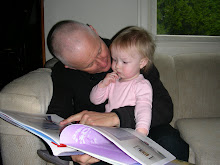It is a vision in which all people are free to speak their opinions honestly, openly, and without fear of reprisals. It is a vision in which people approach one another with mutual respect and openness, willing to put aside petty differences in the interests of the greater good.
I am convinced that in order to move forward, we must say openly the things we hold in our hearts, and that too often are said only behind closed doors. There must be a sustained effort to listen to each other; to learn from each other; to respect one another; and to seek common ground.
Obama calls us to focus on those things that unite rather than those things that divide.
the interests we share as human beings are far more powerful than the forces that drive us apart.In the complex, uncertain and dangerous world in which we live, we can no longer afford the arrogant rhetoric of division. We must be willing to hear those who disagree with us. We must be willing to learn from those who view the world from a different perspective. We must be willing to acknowledge that our way of expressing truth may not be the only way.
I want to particularly say this to young people of every faith, in every country – you, more than anyone, have the ability to remake this world. All of us share this world for but a brief moment in time. The question is whether we spend that time focused on what pushes us apart, or whether we commit ourselves to an effort – a sustained effort – to find common ground, to focus on the future we seek for our children, and to respect the dignity of all human beings.
The first tool for bringing about Obama’s unifying vision is the willingness to listen to the other. It is more important that I hear you than that I convince you of the truth of my position. I can only learn from you if I am willing to hear you. As long as my ears are closed, I cannot receive the wisdom you have to share. And I will only win the right to be heard, when I have first listened deeply and sensitively to your voice.
The church should be the one place Mr. Obama might point to demonstrate the possibility that such a unifying vision could be a reality in the world community.
Tragically, the lessons Obama seeks to teach are lessons the church seems least able to embody. Increasingly factions within the church seek to divide the community of faith into smaller and smaller special interest groups. At a time when the world needs to see a vision of the uniting power of love, we offer a fractious vision of litigation, squabbling, and inability to move beyond minor differences.
A church that fails to heed Obama’s unifying vision will be judged for the division and violence it sows.
Read more...






